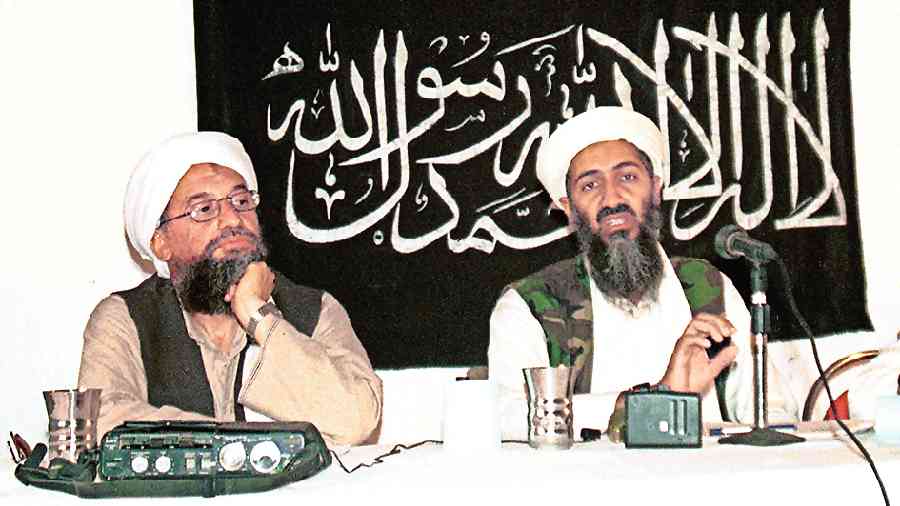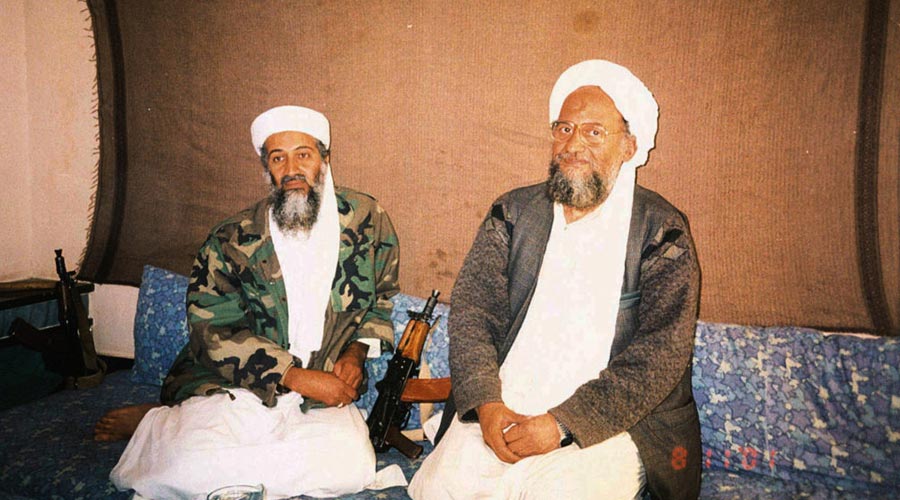An analyst said pictures of the strike on Ayman al-Zawahri posted on social media suggested a strike by an R9X, a Hellfire missile armed with long blades aimed at killing targets with kinetic energy to minimise major collateral damage.
American officials said the CIA fired two Hellfire missiles and killed al-Zawahri on a balcony of the house in downtown Kabul without killing anyone else.
The so-called Ninja Hellfire missile carries an inert warhead. Instead of exploding, it hurls about 45kg of metal through screens such as the top of a target’s vehicle.
If the high-velocity projectile does not kill the target, the missile’s other feature almost certainly does: six long blades tucked inside, which deploy seconds before impact to slice up anything in its path.
The Hellfire variant, known as the R9X, was initially developed nearly a decade ago under pressure from President Barack Obama to reduce civilian casualties and property damage in the US’s long-running wars on terrorism in far-flung hot spots such as Afghanistan, Pakistan, Iraq, Syria, Somalia and Yemen.
The weapon has been used perhaps a half-dozen times in recent years, American officials had said last year, typically when a senior terrorist leader has been situated but other weapons would risk killing nearby civilians.
Conventional Hellfire missiles, with an explosive warhead of about 9kg, are often used against groups of individuals or a so-called high-value target who is meeting with other militants. But when Special Operations forces are hunting a lone leader, the R9X, called the Ninja by commandos, is now often the weapon of choice.
American Special Operations forces used an R9X missile in June to kill Khaled al-Aruri, the de facto leader of the Qaida branch in Syria. American officials confirmed the use of the unusual missile in two earlier instances, one by the CIA in northwest Syria and one by the Joint Special Operations Command in Yemen.
Earlier this year, after American intelligence sources learned that Zawahri’s wife, daughter and grandchildren had relocated to a house in Kabul, intelligence officials used different sources and methods to build a so-called pattern of life that confirmed his presence.
Once Zawahri arrived at the location, American officials were never aware of him leaving, and he was observed for sustained periods on the balcony where he was ultimately struck.
Two top aides to US President Joe Biden — Jonathan Finer, his deputy national security adviser, and Elizabeth Sherwood-Randall, his homeland security adviser — were first briefed on the intelligence in April. Later other officials were brought in, including Jake Sullivan, the national security adviser, who briefed the President.
On July 1, William J. Burns, the CIA director; Avril D. Haines, the director of national intelligence; Christine Abizaid, the director of the National Counterterrorism Centre; and other officials discussed the planned operation with Biden. They showed the President a model of the house al-Zawahri was staying in, and Biden asked questions about weather, construction materials, risk to civilians and other factors that could influence the success of the operation, the official said.
The strike was an important achievement for Biden, whose unpopularity in polls has jeopardised his party’s chances in the midterm elections this fall and prompted fellow Democrats to urge him to let someone else run in 2024.
But such successes on the battlefield have had little lasting political benefit for his predecessors. Successful raids killing the head of the Islamic State and a top Iranian commander made no meaningful difference for Donald Trump, and even the raid that killed Osama bin Laden resulted in only a temporary bump in the polls for President Obama.











